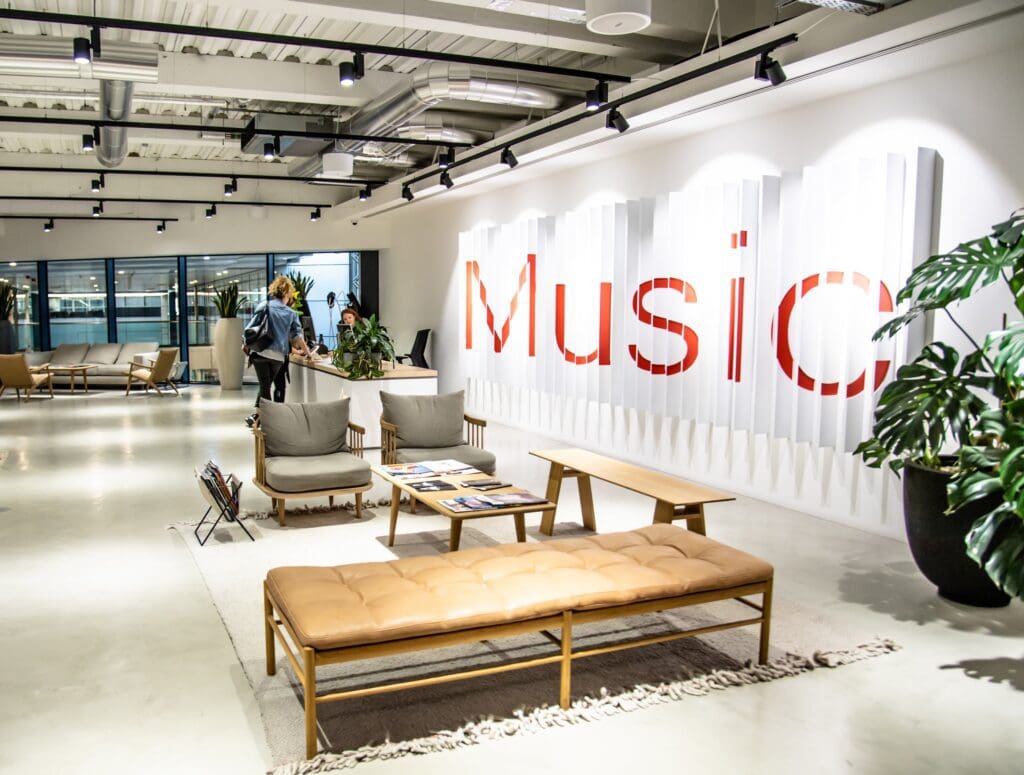What was the first role you took on when you started at Kobalt Music, back in 2006?
I joined Kobalt Music straight after my masters degree as a junior software engineer. Being the fourth engineer in a small fast paced start-up, I was involved in all the stages of the development lifecycle for all of our products back then.
And what does your role encompass now?
As a senior engineering manager, I manage a team of software engineers who build and maintain systems for the catalogue and registrations sides of the business. My role as a people manager is to hire good engineers and ensure that they are successful in their roles through support, guidance, motivation, knowledge sharing and constant learning. Another aspect of my role is to guide the strategy and its execution for my team. Set clear expectations/goals with my team members and support the team in delivering them. Furthermore, I collaborate with my peers and contribute to or sometimes drive various cross-team or departmental initiatives. Finally, I participate in various technical music industry forums to keep myself updated with the latest developments.
What has kept you in the same company for over 16 years?
I like solving the music industry’s problems with the use of tech, something that Kobalt has been doing very well since the beginning.
When I joined Kobalt, we were a small start-up disruptor, not very well known and over the years we have managed to become one of the top music publishers in the world. Being part of this fascinating journey and contributing to Kobalt’s success is something that keeps me motivated to achieve even more. Also, as a value driven person, I am passionate about the impact our products and services have on our songwriters, whether that is registering their works faster and accurately or paying them more royalties on time.

What technologies and products are core to the Kobalt offering?
Kobalt’s systems have evolved over time and are spread across cloud – Amazon Web Services (AWS) infrastructure and on premise, soon Oracle Cloud Infrastructure (OCI) for our Oracle monolithic application.
Our core tech platform is responsible for:
- Sending notifications/registrations of our clients’ songs to societies & licensees around the world such as YouTube.
- Licensing the use of clients’ songs in TV, films, games and adverts.
- Processing the millions of royalties and usages and paying them out to our clients.
- Keeping our clients informed through our mobile and web applications.
and it has been built on:
- Programming languages: Java, React, PL/SQL
- Frameworks: Spring boot
- DevOps: Gradle, Datadog, Docker, GitHub, Terraform, CircleCI, Kubernetes (EKS), Kafka (MSK)
How does Kobalt’s mission and culture guide you to build the technology you require?
Kobalt’s mission to make the music industry more fair and rewarding for the creators is our compass when designing and building our systems.
Here are some examples of technical choices guided by our mission:
Moreover, the process of designing and building our systems is also driven by the Kobalt values. The team members are encouraged to be creative, share their ideas and challenge others’ ideas, so that the best solution gets implemented.

How does Kobalt work to retain its employees in an inclusive and supportive environment?
Our support system starts from the first day of our new joiners. A “buddy”, designated person, is assigned to each new joiner whose responsibility is to support the new joiner, answer their questions, train them and pair code with them until they become familiar with the code/systems. Also, our new joiners benefit from our structured documentation of processes and systems.
Our supportive culture continues throughout. Within my team, we run fortnightly knowledge sharing sessions where everyone is expected to share any new knowledge they have acquired such as solving a difficult problem or experience from using a new technology. Similarly, the engineering community of practice is the forum for knowledge sharing across technical teams. Moreover, our engineers are constantly encouraged to attend online courses, workshops and conferences to enhance their knowledge or acquire new skills. Everyone is very friendly and is only one call, message or step away.
It is important to us that everyone feels that they are a valuable member of the Kobalt family. The regular breakfast clubs and socials contribute to the sense of belongingness. We have an active DEI group, formally sponsored and actively monitored by executive leadership, driving a number of initiatives via company DEI-related pillars and working groups; increased transparency & outreach, increased workforce diversity, Kobalt brand is identified with by candidates, to foster an inclusive and equitable culture in our workplace
Finally, as a mum of a 6 years old boy, I have benefited from both the remote and the flexible working schemes, e.g. flexible working hours and summer hours that Kobalt provides to its employees. Both schemes have enabled me to continue working full time on a busy role while I look after my family.








